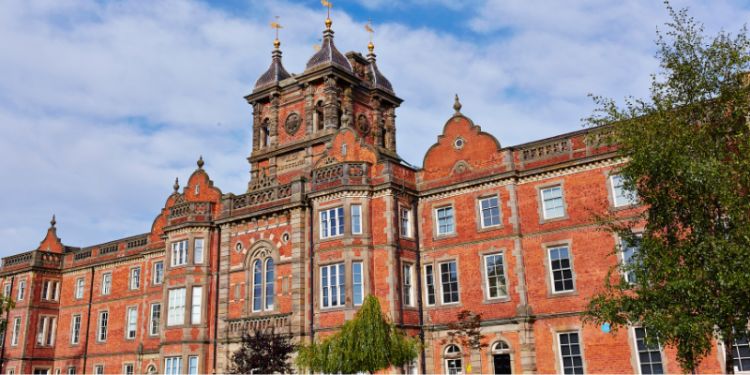AHC researchers join stellar lineup for Thackray Museum’s Insights season 2024/25

The Thackray Museum’s new Insights season starts this autumn and runs until 2025
Leading researchers from across the Faculty of Arts, Humanities and Cultures are set to feature in the Thackray Museum’s new Insights season for 2024-25.
The Thackray Museum of Medicine is the UK’s largest independent medical museum. The Insights season forms a core element of the museum’s Talks and Lates programme designed to explore unusual topics and untold stories with the help of special guests, hands-on experiences, medical experiments, performance and more.
Insights events take place on select Saturday mornings and Thursday evenings throughout autumn and winter, and include lectures, panel debates and lates.
If we could control our own medical tests and design our own prescriptions, would we be healthier and happier? Personalised medicine has been around for centuries. In the past, apothecaries would mix pills to order, and those who could afford it would have access to a personal physician.
From bionic eyes to artificial tongues to 3D printed pills, our latest exhibition explores the eye-catching tech from the past, present and future that empower the way we take care of ourselves. Join Dave Lynch (Creative Director, lmmersive Networks Collective) as he facilitates a discussion with the curatorial team around the mind boggling medical inventions they came across and what they mean for the future of your healthcare.
Featuring: Professor James Stark, Professor of Medical Humanities at the School of Philosophy, Religion and History of Science
& Lynn Wray, a researcher, creative practitioner and currently the Living Bodies Objects project Research Fellow at the University of Leeds.
In the Victorian era, in the shadow of Darwin’s ideas about evolution, a controversial new idea began to grow in the clubs, salons and offices of the powerful. Enjoying huge popular support for over 60 years, the legacy of eugenics persists in our language and literature, from the words ‘moron’ and ‘imbecile’ to the themes of some of our greatest works of culture.
Join us as we explore how popular narratives around science have been used to separate and control us and how this powerful legacy still shapes us today.
Featuring: Professor Gregory Radick, an award winning historian of science and Professor of History and Philosophy of Science at the School of Philosophy, Religion and History of Science. Professor Radick regularly contributes to the Times Literary Supplement and has appeared on BBC Radio 4’s /n Our Time.
Blood provides a unique and valuable perspective on contemporary social relationships the world over due to its powerful symbolic meanings and essential role in healthcare. Its close ties to how we live and identify, our relationships and the boundaries we set become ever more prescient when it comes to the practice and perceived limitations of blood donation.
This talk provides a critical account of how understandings of race have taken shape over the emergence of this global healthcare infrastructure. Join us as we explore how people make sense of who should donate blood for whom and why – how do these conversations shape how global communities are imagined, and with what social and ethical consequences?
Featuring: Dr Jieun Kim, an Associate Professor of East Asian Studies at the School of Languages, Cultures and Societies, who examines how social inequalities are challenged based on perceptions of social and bodily differences.
‘To understand the causes of life, we must first have recourse to death’ – Frankenstein, Mary Shelley
Human remains have for centuries been key to the way we have understood our own anatomy. Used for dissection and research in disease, they are often housed in museum collections the world over. Remains also have the power to tell us about the person they once were and unpack the stories of the world in which they lived.
Join our panel of experts for a lively discussion surrounding the history of human remains, how they have broadened our medical and historical understanding, and the ethical arguments surrounding their collection and display.
Featuring: Dr Katherine Rawling, a historian of medicine and visual culture, and a Lecturer in 19th century British History, at the School of History.
For more information and to book tickets, visit thackraymuseum.co.uk/insights.
Tickets are free for students.




